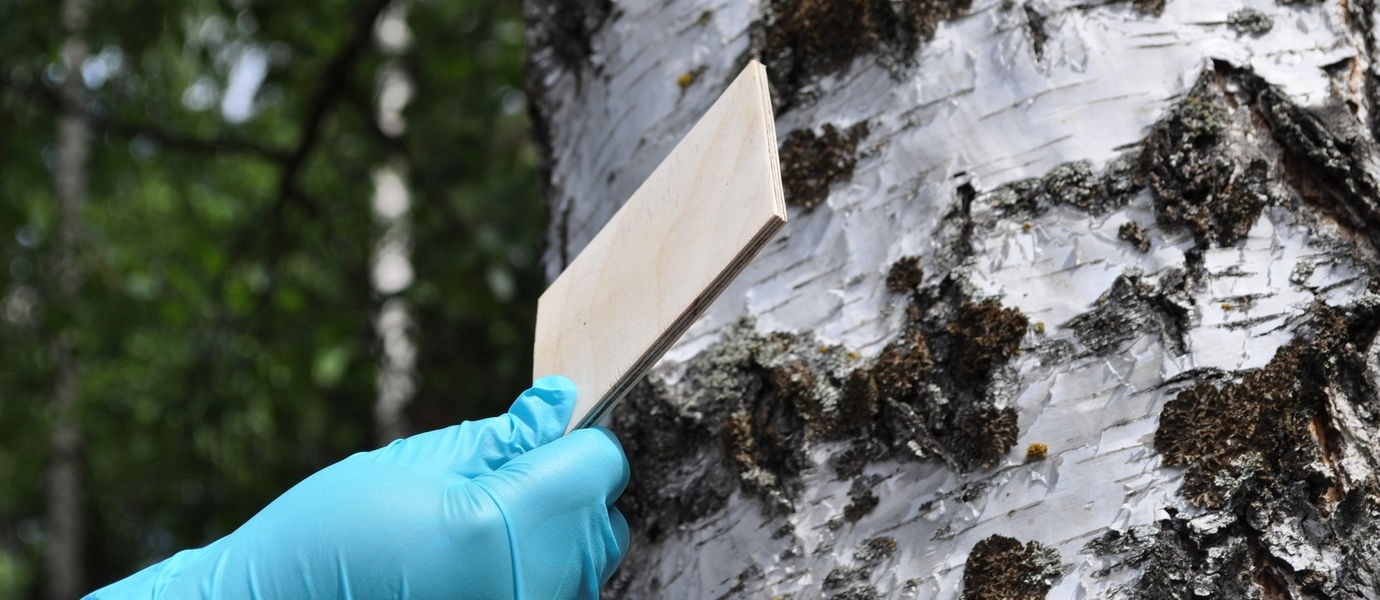Researchers from Aalto University have created a bio-based adhesive that can replace formaldehyde-containing adhesives in wood construction.
 Plywood with eco-glue produced in Aalto University. Image Credit: Aalto University
Plywood with eco-glue produced in Aalto University. Image Credit: Aalto University
The primary raw material in the new adhesive is lignin, which is a structural component of wood and a byproduct of the pulp industry that is typically burned after the wood has been processed. Lignin, as an option for formaldehyde, provides a healthier and more eco-friendly way to use wood in building projects.
Timber construction has a lower carbon footprint than concrete construction, and it is often thought to be more beneficial to the health of human occupants as well. Wood panels, on the other hand, continue to use adhesives derived from fossil raw materials.
They encompass formaldehyde, which is hazardous to one’s health, particularly for those involved in the adhesive manufacturing process. People who live in or visit buildings may be exposed to toxic formaldehyde emitted by wood panels.
Lignin, on the other hand, is derived from wood. It is responsible for the tough, strong structure of wood by binding cellulose and hemicellulose together. Lignin makes up about a quarter of the weight of wood and is abundant in the pulp and bioprocessing industries. Only 2–5% of the lignin generated is used, with the remainder being burned for energy in factories.
Previously, using lignin in formaldehyde-free adhesives required lengthy and chemically intensive pre-treatments. The Aalto University scientists’ adhesive can use purified kraft lignin, and the chemical reaction to create the adhesive only takes a few minutes rather than up to ten hours. Since no extra heating of the raw material is required, energy consumption is reduced. Salt and sodium hydroxide, or lye, are the only byproducts of the procedure.
Monika Österberg, professor of chemical engineering at Aalto University, emphasizes the significance of this advancement for both the environment and industry.
Using lignin as a material can reduce carbon dioxide emissions and increase the processing value of forests. This is why research on lignin is an important priority for us at Aalto University.
Monika Österberg, Professor, Chemical Engineering, Aalto University
According to doctoral researcher Alexander Henn, glued wood panels like plywood and chipboard are progressively being used for walls, ceilings, and flooring.
“Therefore, it is important to overcome the disadvantages of wood-based panel adhesives and develop the new innovation into a commercial product. This would enable a shift towards more wood-based construction, as a strong and heat-resistant adhesive made from natural materials makes construction truly ecological and safe,” Österberg adds.
The technology is a significant step in the right direction for the forestry and glue sectors, as previous adhesives had relatively low lignin content (around 20-50%), whereas the new Aalto University innovation has a lignin content of more than 90%. The adhesive is firm, non-toxic, and fire-resistant, so it can even be utilized as a flame retardant.
Scientists claim that lignin can also be used as a raw material in applications like coatings and composites. The laboratory work will continue, and numerous commercialization possibilities will most likely be investigated in collaborative efforts with LignoSphere Oy, an Aalto University spin-off.
This study was published in the journal Green Chemistry in August 2022.
“A strong and heat-resistant adhesive makes wood-based construction truly ecological and safe,” says Doctoral researcher Alexander Henn.
Journal Reference:
Henn, K. A., et al. (2022) Interfacial catalysis and lignin nanoparticles for strong fire- and water-resistant composite adhesives. Green Chemistry. doi.org/10.1039/D2GC01637K.
Source: https://www.aalto.fi/en